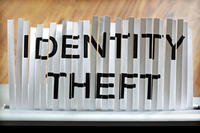In the war on waste, we're a credit to our communities. Our habits and our habitats are "greener" than ever. Sadly, in the war for our wallets, we're still letting plastic beat paper. In the interest of "greening" our finances, here are seven solid ways to pay off credit card debt. For best results, do them in this order.
1. Own what you oweIt sounds so basic, but you can't formulate a plan to pay off credit card debt if you fail to recognize you have a problem with plastic in the first place. This is easier said than done, as it's not easy to admit to ourselves that we've been living a lifestyle beyond our means.
However, once you come to that conclusion and take ownership of it -- I got myself into this situation and I can get myself out -- the results can be both liberating and empowering.
2. Re-evaluate your spending habitsOnce you recognize that a "plastic problem" exists, you need to take a good honest look at your spending habits and establish new priorities. Although taking short cuts by "guesstimating" will be tempting, nothing will give you a clearer picture of your actual wants and needs than itemizing all of your monthly expenditures.
The words "all" and "monthly" appear in bold to remind you that you must write down every single expense, no matter how insignificant it may seem at the time, for a time period of no less than 30 days. Only then will you be armed with the information necessary to take the next step.
3. Negotiate down your debtAlthough many people look at this step as something to be saved when times get really desperate, the old adage "it couldn't hurt to ask" applies here more than ever. After all, why go to all the time and trouble to formulate a pay-off plan based on the current credit card interest rates you are paying when it's likely that some or all of those rates could be lowered significantly just by asking.
Like all of us, creditors want to be paid what's owed them. Therefore, any effort on your part to make lenders aware of financial hardships, as well as your intentions to stay current and avoid defaulting, will most likely result in your being offered lower interest rates and/or longer repayment schedules. You have nothing to lose, and this step alone could save you literally thousands of dollars.
4. Formulate a pay-off plan with realistic goalsNothing will give you a new perspective on the power you have to change your financial situation than the realization that you can control to a great degree, maybe not how much money comes in, but how much money goes out. Unfortunately, along with this newfound power comes the tendency to plan a pay-off strategy that is too aggressive.
Remember, just as most credit card debt is incurred over time, it will also take time to pay that debt off. Setting unrealistic goals that involve paying too much over too short a time period only invites discouragement as those goals fail to meet your high expectations. True empowerment comes from basing your strategy on realistic goals that can be met.
5. Maximize your pay off powerOne of the best ways to realize your long-term goals is to take short-term steps of empowerment along the way. With this in mind, depending on the extent of your credit card debt and your ability to stick to a plan, it might be best to first pay off, not the card with the biggest balance and interest rate, but a card carrying a debt you can pay off more quickly.
Keep in mind that you should pay the maximum amount over the minimum monthly payment that you possibly can and budget accordingly. Then, when the card is paid off, you'll have the gratification of having set and achieved a financial goal. With this shot in the arm, you can evaluate the next best debt to conquer, using the same monthly amount you paid on the first card, plus an extra amount your early success will motivate you to find.
This is not to imply that the process will be easy. However, early rewards will reinforce the fact that the sacrifices you are making are worth it.
6. There's no substitute for self-disciplineAs debts are paid off and cash flow improves, the tendency might be to pull out your low or no-balance credit cards from time to time. Don't do it. Even worse, as you successfully pay off other accounts you may start getting new credit card offers in the mail, dangling the tempting offer of the low interest balance transfer.
Trash-can these come-ons immediately. Balance transfers are temporary band-aids at best, and should never be considered as part of a long-term strategy to pay off plastic debt.
7. Reward yourself along the wayAlthough patience and perseverance can be their own rewards, it doesn't hurt to reward yourself as you meet your short term goals. Obviously, the reward should be modest. You won't be leasing a new Mercedes with your newfound funds. However, a nice night out at the restaurant you used to frequent, or a small, non-impulse purchase would be considered appropriate -- just as long as you pay cash.
This is a guest post from Jeremy Wright, who is a freelance financial writer.
Related Articles










